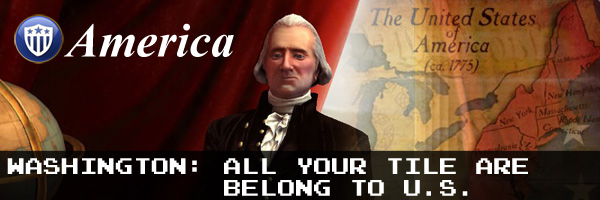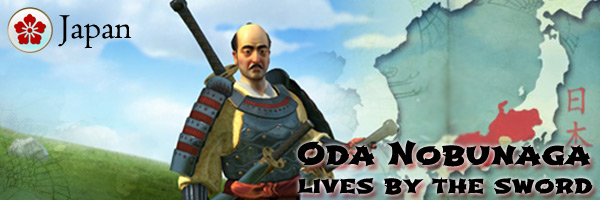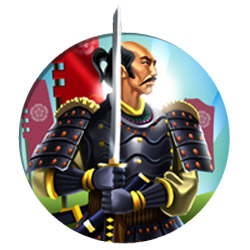
Following up on my previous post about the Top 10 good ideas in Civilization V, here is a list of the opposite: the flaws and annoyances in the game's design that really grind my gears and make me nostalgic for the older games and wishing for dramatic changes in future sequels.
And since I'm always eager to provide constructive criticism where I can, I will propose ideas for addressing some of the problems with these features where relevant. The hope is that future games in the series will be able to learn from Civ V failures and successes and be better games.
Of course, any list of "good ideas" or "bad ideas" is going to be subjective. You may not agree with my opinions, and that's OK. If there's any features, mechanics, or design decisions that you really hate in Civilization V, its DLC, or its two expansions, please feel free to leave a comment!
... [More]
47a0e2f2-1d86-4631-864b-65698442a29f|1|5.0
Tags:Sid Meier's Civilization, civilization, Civilization V: Brave New World, retrospective, Civilization V: Gods & Kings, raze, capitals, insta-heal, lancer, chariot archer, scout, warmonger, tactics, Civilization V

With Starships released, an expansion for Beyond Earth announced, and support for Civ V apparently done, I thought it would be a good time to take a look back at the game. I'm going to spend a few posts to discuss what Civ V did right, and what it did wrong, so that future games can learn lessons from this iteration's successes and failures.
Here I will present a Top 10 list of my favorite new features, mechanics, and design philosophies in Sid Meier's Civilization V (and its two expansion). These are the elements of the game that stood out the most to me as contributing to the fun and addictiveness of the game, and which push the series in positive directions. Most of these features are things that I would probably like to see return in future sequels.
But even though my intent here is to shine glowing praise on Civ V, I'm not going to ignore the faults of even my favorite features. Some of these mechanics are great ideas, but still suffered from problems in execution. So I won't shy away from constructive criticism where applicable, and I'll make recommendations to improve these great features in the future.
In a future post, I will also look at the things that Civ V got wrong.
Of course, any list of "good ideas" or "bad ideas" is going to be subjective. You may not agree with my opinions, and that's OK. If there's any features, mechanics, or design decisions that you really love in Civilization V, its DLC, or its two expansions, please feel free to leave a comment!
... [More]
e0c9eca7-cd83-4140-a7a1-718f8ff1627f|0|.0
Tags:Civilization V: Brave New World, retrospective, Sid Meier's Civilization, civilization, top 10, Civilization V: Gods & Kings, religion, pact of secrecy, diplomacy, tactics, social policies, resource, archaeology, tourism, natural wonder, city state, great work, Civilization V

Continuing my series of strategy posts about Brave New World's modified civilizations, I'm going to take a look at strategies for George Washington's America. Since Brave New World's Fall patch (2013) America's ability was buffed and its unique unit now allows it to generate more late-game golden ages.
The lands of North America have been occupied by various native tribes for thousands of years, but these tribes lived in relative isolation from the rest of the world, except (possibly) for a brief period of interaction with the Danish Vikings. After Christopher Columbus landed in Haiti in the late 15th century, a flurry of explorers and colonists primarily from Britain, France, Spain, and the Netherlands began arriving in North America, rapidly exploring and settling the continent. These colonists gradually displaced the native inhabitants, including the Iroquois and the Shoshone. But conflict between the colonies and their European masters (primarily Britain) eventually culminated in a revolutionary war in which the colonists retreated to the countryside, and used guerrilla tactics to defeat the British and establish the United States of America.
Despite being founded on the principles of "equality" and "inalienable rights", the early history of the United States is dominated by tension between its slave-holding and free populations. These tensions eventually culminated in the outbreak of the American Civil War, which resulted in more American casualties than the Revolutionary War, both World Wars, and the Vietnam War. Combined. Union victory established America as a modern industrial nation with a singular identity, and Americans stopped referring to the country as "These United States", and began calling it "The United States". This war is also significant in world history because it is the first major war in which industrial technologies such as the machine gun, telegraph, railroad, steam-powered ironclad ships, and (probably most significantly) photography were used to large effect, which changed the way that future wars would be fought and the way that they would be perceived by the public. And it was one of the first major wars to employ new urban fighting tactics that would become the basis of combat for the wars of the 20th century. America would play a pivotal role in those 20th century wars as well, and would emerge from them as a dominant global super power.

George Washington was a colonial general who lead the British colonies in America in wars against the French and various Native American tribes. When the colonies declared independence, Washington became one of the premiere generals for the new colonial militia. Knowing that they could not defeat the British in conflict in the cities or open field, Washington and the other colonial leaders gave the cities to the British and retreated to the hills and forests of the countryside. Here, they successfully employed large-scale guerrilla tactics that weakened the British supply lines and culminated in American victory. Washington would then become the country's first President and set several precedents, such as the idea that the President would be a civilian position (as he refused to wear his military uniform while in office), and that the President should step down after two terms. [More]
9d9b8548-3186-4f3c-b9db-4a3a10293e70|1|5.0
Tags:Sid Meier's Civilization, Civilization V: Brave New World, Civilization V, America, George Washington, Washington, B-17, flying fortress, Manifest Destiny, line of sight, exploration, reconnaissance, ancient ruins, golden age, Golden Age from Victories, tile acquisition, musketman, bomber, Civ V Fall Patch, Minuteman, Civ-V, slavery, Atlantic slave trade

Over the weekend of March 7, I was once again invited to participate in the Civilization podcast "PolyCast". It's always enjoyable to participate in this show. DanQ and the others always do an excellent job (even though Dan wasn't in this episode).
I particularly enjoyed this one because I felt that I had more to contribute than on some of the other episodes that I've been invited to. Part of that was because I actually reviewed the topics in advance and prepared for the episode. But it was also advantageous that one of the topics discussed was my own blog post about Civ VI ability ideas. I don't think that discussion made it into the edited episode, but it will perhaps make it into a clip show later in the year. Even so, I felt like I had valuable commentary on the other topics, and there were some good discussions.
The episode can be streamed in its entirety at thePolyCast.net.
The first and most significant topic of conversation was about a video posted by Errant Signal that takes a critical look at the meta-themes of Civilization and what they say about our perception of what it is to be "civilized".
His primary criticism is that the game unnecessarily puts civilizations in competition with one another, rather than fostering a spirit of cooperation; and that the various victory conditions in the game are very "American", "Western-centric" ideals. So our PolyCast panel discussed these criticisms and different game mechanics that contribute to them, as well as ideas for ways to alleviate them (particularly on the topic of victory conditions).
Another significant topic of conversation was whether or not we really want the different civilizations to have unique units and powers in the game. The question was posed on the Civfanatics forums by user Naokaukodem, who seems to be arguing in favor of removing the unique units and making them accessible to any civilization that techs to them. I think it is safe to say that the panelists on PolyCast were not in favor of such a change, and some good arguments (both mechanically and thematically) are made in favor of keeping the uniques as they are.
There were also some other discussions of various Beyond Earth topics and some other discussion. I'm not sure if all of it made it into the final edited episode, as we went well over the allotted time. So some of the discussion might have to be rolled into one of PolyCast's future clip shows. After listening to the full episode, all the topics discussed in the live podcast did make it into the edited version available on the site.
Thanks, as always, to the PolyCast hosts for the invitation. I hope to participate again soon! [More]
d761ab9a-2bc4-4601-9cc8-c61634f57c2a|1|5.0
Tags:Civilization, Sid Meier's Civilization, Civilization V, Civilization V: Gods & Kings, Civilization V: Brave New World, Civilization: Beyond Earth, Errant Signal, Civfanatics, PolyCast, Firaxis, podcast, DanQ, Makahlua, TheMeInTeam, Talcove, SemperFi2382, Civilization III, Civilization IV, Civilization V, Civilization: Beyond Earth

Continuing my series of strategy posts about Brave New World's modified civilizations, I'm going to take a look at strategies for Oda Nobunaga's Japan. Since Brave New World's Fall patch Japan was given additional buffs towards culture and coastal starts.
Japan is a series of four large island and numerous smaller islands that were formed by volcanoes. It has been inhabited since the upper paleolithic era (about 30 thousand years ago), and its people have lived in relative isolation for much of its history. It has gone through periods of war with its closest neighbors across the sea: China and Korea, and has had significant cultural influences from both, such native Shinto's two competing religions: Buddhism and Confucianism. Throughout most of Japanese history, the country has been in a feudal state, with regional populations being loyal to a warlord who is granted land and titles from the emperor (or "Shogun"). In-fighting between warlords was common, and power often ebbed and flowed between different clans and families.

Samurai Daimyo Oda Nobunaga helped Ashikaga Yoshiaki to reclaim the title of Shogun for his clan in 1568, and Nobunaga used the leader as a puppet to enable his own conquests. He was a brutal warrior who once set fire to an enemy complex, killing tens of thousands of civilian non-combatants (including women and children) in order to put down a rebellion of farmers and monks. He eventually attained military control of more than half of the territories of Japan on behalf of the Shogun. His successor, Hashiba Hideyoshi, would complete the unification of Japan 11 years after political and personal tensions lead to Nobunaga's assassination by a vassal clan.
In the 19th century, Japan's isolation finally ended and it began the process of rapidly modernizing. By the 1930's, Japan had developed into a modern military-industrial machine that was almost the technological equivalent of the United States and European powers. It became the dominant power in the Pacific prior to being defeated by the United States in the second half of World War II. [More]
1cad9ae0-1148-4d92-80d2-cc7859222fda|3|5.0
Tags:Sid Meier's Civilization, Civilization V: Brave New World, Civilization V, Japan, Oda Nobunaga, Bushido, daimyo, shogun, Zero, culture, tourism, sea resources, fishing boats, sushi, longswordsman, fighter, warmonger, samurai, Civ V Fall Patch, Civ-V
|

| 12 | | | | | | | 60 | | 11 | | | | | | | 55 | | 10 | | | | | | | 50 | | 09 | | | | | | | 45 | | 08 | | | | | | | 40 | | 07 | | | | | | | 35 | | 06 | | | | | | | 30 | | 05 | | | | | | | 25 | | 04 | | | | | | | 20 | | 03 | | | | | | | 15 | | 02 | | | | | | | 10 | | 01 | | | | | | | 05 |
|